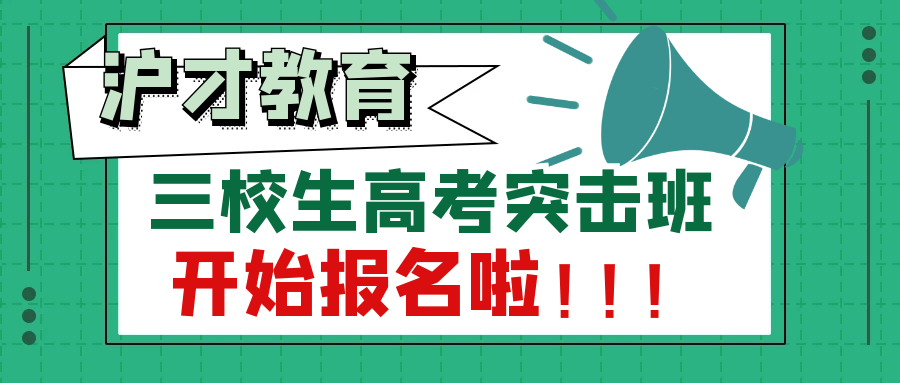按用途分
| 种 类 | 类 型 | 例 句 |
| 陈述句 | 肯定句 | We love our motherland. 我们热爱祖国。 |
| 否定句 | They don’t go to work on Sundays. 他们星期日不上班。 | |
| 疑问句 | 一般疑问句 |
Are you a worker? 你是个工人吗? Haven’t you seen the film? 你没看过这部电影吗? |
| 特殊疑问句 |
Who is the man? 这人是谁? When do you watch TV? 你什么时间看电视? What are they doing now? 他们现在正在干什么? |
|
| 选择疑问句 |
Do you want tea or coffee? Either will do. 你要茶水还是要咖啡?哪种都行。 Does he learn Japanese or French? He learns French. 他学日语还是学法语?他学法语。 |
|
| 反意疑问句 |
They are going to the airport, aren’t they? 他们要去机场,是吗? You haven’t finished your homework, have you? 你没做完作业,是吗? |
|
| 祈使句 | 肯定句 | Be sure to get there at eight. 务必八点钟到那儿。 |
| 否定句 | Don’t worry. I’ll help you out. 别担心,我会帮助你的。 | |
| 感叹句 | what + 名词 |
What great changes we have had these years! 这几年我们有了多么大的变化啊! What a fine day it is! 多好的天气呀! |
| how + 形容词或副词 |
How brave he is! 他多么勇敢呀! How hard they are working! 他们工作多努力呀! |
|
| how +句子 | How time flies! 时间过得多么快呀! | |
| How + adj. + a (an) + n.=What a(an)+adj.+n | How nice a boy (he is) !=What a nice boy (he is)! 多好的孩子啊! |
| 种类 | 类型 | 例句 |
| 简单句 | 主+谓 | They disappeared. 他们消失了。 |
| 主+谓+宾 |
He likes swimming.他喜欢游泳。 We help each other. 我们互相帮助。 |
|
| 主+谓+间宾+直接宾 |
I told my friend the good news. 我把好消息告诉了我的朋友。 They sent us a telegram. 他们给我们拍了电报。 |
|
| 主+谓+宾+宾补 |
They named the boy Jack. 他们给孩子起名叫杰克。 I want everything ready by eight o’clock. 我要求一切都要在八点前准备好。 |
|
| 主+系+表 |
She is a university student. 她是一名大学生。 He has become a pilot. 他已成为一名飞行员。 |
|
| 并列句 | 并列关系and, not only…but also, neither …nor, both…and, not…but, |
Either you do it, or I ask for somebody else to do it. 要么你来做,要么我请其他人来做。 Neither Tom nor Jack has finished the homework. 汤姆和杰克都没有完成作业。 Not couldn’t they complete the task, but the task was too tough. 不是他们完不成任务,而是任务太重了。 |
|
转折关系but,while(而,尽管) nevertheless(然而;不过) |
John likes playing basketball, but he didn’t play it yesterday. 约翰喜欢打篮球,但他昨天没打。 | |
| 选择关系or, otherwise or else, either…or |
We must hurry, or we’ll miss the train. 我们必须快点,否则会赶不上火车。 Either you come to my place or I go to yours. 或者你到我这儿来,或者我到你那去。 |
|
| 因果关系for, so, thus, therefore, and so |
We had better stay at home, for it was raining. 我们最好呆在家里,因为天正在下雨。 He didn’t work hard, therefore he failed in the examination. 他学习不努力,因此这次考试不及格。 |
|
| 复合句 | 由一个主句和一个或一个以上的从句构成的句子叫复合句。在复合句中主句是全句的主体,从句是全句的一个成分,不能独立。 |
从句有:名词性从句(主语从句,表语从句,宾语从句和同位语从句) 状语从句 定语从句 (详细请看以下各节罗列的内容) |
按用途分
| 种 类 | 类 型 | 例 句 |
| 陈述句 | 肯定句 | We love our motherland. 我们热爱祖国。 |
| 否定句 | They don’t go to work on Sundays. 他们星期日不上班。 | |
| 疑问句 | 一般疑问句 |
Are you a worker? 你是个工人吗? Haven’t you seen the film? 你没看过这部电影吗? |
| 特殊疑问句 |
Who is the man? 这人是谁? When do you watch TV? 你什么时间看电视? What are they doing now? 他们现在正在干什么? |
|
| 选择疑问句 |
Do you want tea or coffee? Either will do. 你要茶水还是要咖啡?哪种都行。 Does he learn Japanese or French? He learns French. 他学日语还是学法语?他学法语。 |
|
| 反意疑问句 |
They are going to the airport, aren’t they? 他们要去机场,是吗? You haven’t finished your homework, have you? 你没做完作业,是吗? |
|
| 祈使句 | 肯定句 | Be sure to get there at eight. 务必八点钟到那儿。 |
| 否定句 | Don’t worry. I’ll help you out. 别担心,我会帮助你的。 | |
| 感叹句 | what + 名词 |
What great changes we have had these years! 这几年我们有了多么大的变化啊! What a fine day it is! 多好的天气呀! |
| how + 形容词或副词 |
How brave he is! 他多么勇敢呀! How hard they are working! 他们工作多努力呀! |
|
| how +句子 | How time flies! 时间过得多么快呀! | |
| How + adj. + a (an) + n.=What a(an)+adj.+n | How nice a boy (he is) !=What a nice boy (he is)! 多好的孩子啊! |
| 种类 | 类型 | 例句 |
| 简单句 | 主+谓 | They disappeared. 他们消失了。 |
| 主+谓+宾 |
He likes swimming.他喜欢游泳。 We help each other. 我们互相帮助。 |
|
| 主+谓+间宾+直接宾 |
I told my friend the good news. 我把好消息告诉了我的朋友。 They sent us a telegram. 他们给我们拍了电报。 |
|
| 主+谓+宾+宾补 |
They named the boy Jack. 他们给孩子起名叫杰克。 I want everything ready by eight o’clock. 我要求一切都要在八点前准备好。 |
|
| 主+系+表 |
She is a university student. 她是一名大学生。 He has become a pilot. 他已成为一名飞行员。 |
|
| 并列句 | 并列关系and, not only…but also, neither …nor, both…and, not…but, |
Either you do it, or I ask for somebody else to do it. 要么你来做,要么我请其他人来做。 Neither Tom nor Jack has finished the homework. 汤姆和杰克都没有完成作业。 Not couldn’t they complete the task, but the task was too tough. 不是他们完不成任务,而是任务太重了。 |
|
转折关系but,while(而,尽管) nevertheless(然而;不过) |
John likes playing basketball, but he didn’t play it yesterday. 约翰喜欢打篮球,但他昨天没打。 | |
| 选择关系or, otherwise or else, either…or |
We must hurry, or we’ll miss the train. 我们必须快点,否则会赶不上火车。 Either you come to my place or I go to yours. 或者你到我这儿来,或者我到你那去。 |
|
| 因果关系for, so, thus, therefore, and so |
We had better stay at home, for it was raining. 我们最好呆在家里,因为天正在下雨。 He didn’t work hard, therefore he failed in the examination. 他学习不努力,因此这次考试不及格。 |
|
| 复合句 | 由一个主句和一个或一个以上的从句构成的句子叫复合句。在复合句中主句是全句的主体,从句是全句的一个成分,不能独立。 |
从句有:名词性从句(主语从句,表语从句,宾语从句和同位语从句) 状语从句 定语从句 (详细请看以下各节罗列的内容) |
按用途分
| 种 类 | 类 型 | 例 句 |
| 陈述句 | 肯定句 | We love our motherland. 我们热爱祖国。 |
| 否定句 | They don’t go to work on Sundays. 他们星期日不上班。 | |
| 疑问句 | 一般疑问句 |
Are you a worker? 你是个工人吗? Haven’t you seen the film? 你没看过这部电影吗? |
| 特殊疑问句 |
Who is the man? 这人是谁? When do you watch TV? 你什么时间看电视? What are they doing now? 他们现在正在干什么? |
|
| 选择疑问句 |
Do you want tea or coffee? Either will do. 你要茶水还是要咖啡?哪种都行。 Does he learn Japanese or French? He learns French. 他学日语还是学法语?他学法语。 |
|
| 反意疑问句 |
They are going to the airport, aren’t they? 他们要去机场,是吗? You haven’t finished your homework, have you? 你没做完作业,是吗? |
|
| 祈使句 | 肯定句 | Be sure to get there at eight. 务必八点钟到那儿。 |
| 否定句 | Don’t worry. I’ll help you out. 别担心,我会帮助你的。 | |
| 感叹句 | what + 名词 |
What great changes we have had these years! 这几年我们有了多么大的变化啊! What a fine day it is! 多好的天气呀! |
| how + 形容词或副词 |
How brave he is! 他多么勇敢呀! How hard they are working! 他们工作多努力呀! |
|
| how +句子 | How time flies! 时间过得多么快呀! | |
| How + adj. + a (an) + n.=What a(an)+adj.+n | How nice a boy (he is) !=What a nice boy (he is)! 多好的孩子啊! |
| 种类 | 类型 | 例句 |
| 简单句 | 主+谓 | They disappeared. 他们消失了。 |
| 主+谓+宾 |
He likes swimming.他喜欢游泳。 We help each other. 我们互相帮助。 |
|
| 主+谓+间宾+直接宾 |
I told my friend the good news. 我把好消息告诉了我的朋友。 They sent us a telegram. 他们给我们拍了电报。 |
|
| 主+谓+宾+宾补 |
They named the boy Jack. 他们给孩子起名叫杰克。 I want everything ready by eight o’clock. 我要求一切都要在八点前准备好。 |
|
| 主+系+表 |
She is a university student. 她是一名大学生。 He has become a pilot. 他已成为一名飞行员。 |
|
| 并列句 | 并列关系and, not only…but also, neither …nor, both…and, not…but, |
Either you do it, or I ask for somebody else to do it. 要么你来做,要么我请其他人来做。 Neither Tom nor Jack has finished the homework. 汤姆和杰克都没有完成作业。 Not couldn’t they complete the task, but the task was too tough. 不是他们完不成任务,而是任务太重了。 |
|
转折关系but,while(而,尽管) nevertheless(然而;不过) |
John likes playing basketball, but he didn’t play it yesterday. 约翰喜欢打篮球,但他昨天没打。 | |
| 选择关系or, otherwise or else, either…or |
We must hurry, or we’ll miss the train. 我们必须快点,否则会赶不上火车。 Either you come to my place or I go to yours. 或者你到我这儿来,或者我到你那去。 |
|
| 因果关系for, so, thus, therefore, and so |
We had better stay at home, for it was raining. 我们最好呆在家里,因为天正在下雨。 He didn’t work hard, therefore he failed in the examination. 他学习不努力,因此这次考试不及格。 |
|
| 复合句 | 由一个主句和一个或一个以上的从句构成的句子叫复合句。在复合句中主句是全句的主体,从句是全句的一个成分,不能独立。 |
从句有:名词性从句(主语从句,表语从句,宾语从句和同位语从句) 状语从句 定语从句 (详细请看以下各节罗列的内容) |
A.and B.or C.but D.so
2. Study hard,____you will catch up with others.
A.and B.or C.but D.so
3. Could you tell me____we will have a discussion tomorrow?
A. whom B.that C.what D.where
4. My sister asked me____ kite____.
A. who...this was B. whose... this was C. whose...was it D.who...was this
5. "Have you returned the book to the library?"
“What did she ask?"
“She asked ____,”
A. whether you have returned the book to the library
B. if you had returned the book to the library
C. whether have you returned the book to the library
D. if had you returned the book to the library
6.“I am writing a report and I can't go shopping with you”,George said.(改为由that引导的宾语从句)
7. Will you please tell me____ with Peter?
A. what's the matter B. what the matter is
C. the matter is what D.what the matter it is
8.I don't know if Mr Wang____.If he____,please let me know.
A. Comes... comes B. will come...will come
C. comes...will come D. will come...comes
9. Could you tell me____?
A. where the bookshop was B. where the bookshop is
C. where was the bookshop D. where is the bookshop
10. Light travels faster than sound. (句型转换)
The teacher told us that light____________faster than sound.
A. travelled B. travels C. is travelling D. was travelling
11.“Can you help me with physics or not” She asked me.(句型转换)
She asked me____I could help her with physics or not.
12. He can't work out the problem by himself. I believe.(用宾语从句改写句子)
13. She is going to report to us as soon as she____.
A. will arrive B.arrives C. is arriving D. is going to arrive
14. Mr Smith has worked in that factory ____ he moved to this city.
A. since B.by C.when D.until
15. He was so tired that he couldn't go any further.(句型转换)
He was_______ tired ________go any further.
16. Jane studied so hard that she passed the entrance examination finally(句型转换)
Jane studied hard _____________ pass the entrance examination finally.
17. Because he is ill, so he can't go to school.(误)
He is ill, so he can't go to school.(正)
He can't go to school because he is ill.(正)
18. Although he is old, but he is still in good health.(误)
Although he is old, (yet) he is still in good health.(正)
He is old, but he is still in good health.(正)
19. In fact, I didn't understand the question ___________ was asked in French.
A. who B.whose C.which D.what
20.All_______ we need is fresh water.
A. that B.what C.which D.who
1.【解析】 答案是B。这里or表示转折,意为“不然”,“否则”。此句可以转换为:If you drink too much coffee in the evening, you won't fall asleep.
2.【解析】答案是A。“努力学习,你就会赶上别人的。”此句可以转换为:If you study hard, you will catch up with others.
注:祈使句在变为if从句后,原祈使句后的and或or必须去掉。
3.【解析】本题考查的是宾语从句引导词的选择。连词that在宾语从句中无实际意义,口语中经常省略掉。whom和what应当是充当句子中的宾语,而此句中从句的宾语为 discussion, A,C均不适宜。这里是让对方告诉“明天在哪里开讨论会”,只有时间,没有地点,所以此题的正确答案是D。
4.【解析】本题考查了宾语从句的语序及引导词的选用。宾语从句要使用陈述句语序,即“主语 + 谓语…”的结构,因此首先排除C,D两项;who和whose都可以引导宾语从句;根据句意“谁的风筝”,故选B。
5.【解析】 答案是B。根据宾语从句时态前后应保持一致的原则,首先应排除A,C两项;又根据宾语从句的语序要求陈述句结构,排除D项。
注:从句时态的呼应规律为
|
原直接引语中 |
变成的宾语从句中 |
|
一般现在时 |
一般过去时 |
|
现在进行时 |
过去进行时 |
|
现在完成时 |
过去完成时 |
|
一般将来时 |
过去将来时 |
|
一般过去时 |
过去完成时或一般过去 |
6.【解析】 原句为陈述句,引号内为直接引语,按要求应改成由that引导的宾语从句。根据上面的表格,主句的时态是过去时,从句的谓语动词要变成相应的过去的时态,以保持前后时态的一致。本题答案是George said that he was writing a report and he couldn't go shopping with me.
7.【解析】 答案是A。原句What's the matter with Peter?是一个特殊疑问句,变成了由what引导的宾语从句,因此what在句中作主语,the matter作表语,所以语序不变,系动词is不可放到表语the matter之后。故仍应是what's the matter。类似的结构还有I don't know what is wrong with Peter.而不是I don't know what wrong is with Peter.
8.【解析】此题既考查了宾语从句的时态,又考查了条件状语从句。第一个句子里if引导的是一个宾语从句,因不知“是否要来”,动作尚未发生,从句的谓语动词应用将来时will come才合情理。第二句中的if引导的是一个条件状语从句,意思是“如果他要来的话”。在条件句中应用一般现在时代替将来时。惟有D项才同时符合这两个条件,所以答案为D。
9.【解析】 按照语法规则我们可以首先确定宾语从句为陈述句语序,便可以排除C、D选项。其次要弄清这里的could不表示过去时态,而是表示一种客气、婉转的语气,所以宾语从句不用过去时态。本题的答案是B。
10.【解析】 当宾语从句表示的是一个自然现象、科学原理、客观事实时,即使主句是过去时,从句也要用一般现在时。因此本题答案为B。
11.【解析】宾语从句中如果是含有or的选择疑问句,应该用whether来连接,而不用if,这里应填whether。注:whether和if均可用来引导宾语从句,意思也相同,一般可互换。但下列情形须用whether,不用if。
(1)介词之后:
We are talking about whether we will go for a picnic or not.
(2)不定式之前:
I asked her whether to sit at the front.
(3)与or not连用时:
I don't know whether he can speak Japanese or not.
12.【解析】 当主句的主语为I,we,谓语为think,believe,guess,suppose等词时,其后的宾语从句的否定应该转移到主句上。如:I don't think she can drive a bus.所以本题的答案为:I don't believe he can work out the problem by himself.
13.【解析】 答案是B。在when,as,before,after,as soon as,until等引导的时间状语从句和if引导的条件状语从句中,从句该用一般将来时的时候,需用一般现在时去代替一般将来时。这里的A,C,D三个选项均表示将来,所以不能选。
14.【解析】答案是A。因为since引导的时间状语从句在绝大多数情况下时间搭配比较
固定,主句是可延续性动词的现在完成时,从句是瞬间性动词的一般过去时,表示动作的起点。但是"It is..since"句型例外;如:it is almost ten years since we left school.
15&16【解析】结果状语从句可以转换成简单句。当 that从句是否定式时,可转换成“too…to do”结构,当that从句是肯定式时,可转换成“形容词/副词+enough( for sb ) to do”结构。上面两道题的答案分别为15. too,to 16. enough,to
17.【解析】表示“因为……所以……”这种概念时,不可受汉语习惯的影响。要么只用 because,构成原因状语从句;要么只用SO,构成并列句。because/as/since不能与so出现在同一句中。
18.【解析】 though/although不能与but出现在同一句中,但可以用yet。
In fact, I didn't understand the question ___was asked in French.
A. who B.whose C.which D.what
19.【解析】答案是C。“事实上我不懂用法语提出的这个问题。”句中,先行词question指物,故用关系代词which,在定语从句中作主语。
20.【解析】答案是A。“我们所需要的是淡水。”句中“that we need”是定语从句,修饰先行词all。 all是不定代词,后面一般不用关系代词which修饰,排除C。what不引导定语从句,排除B。D则与句意不符。






